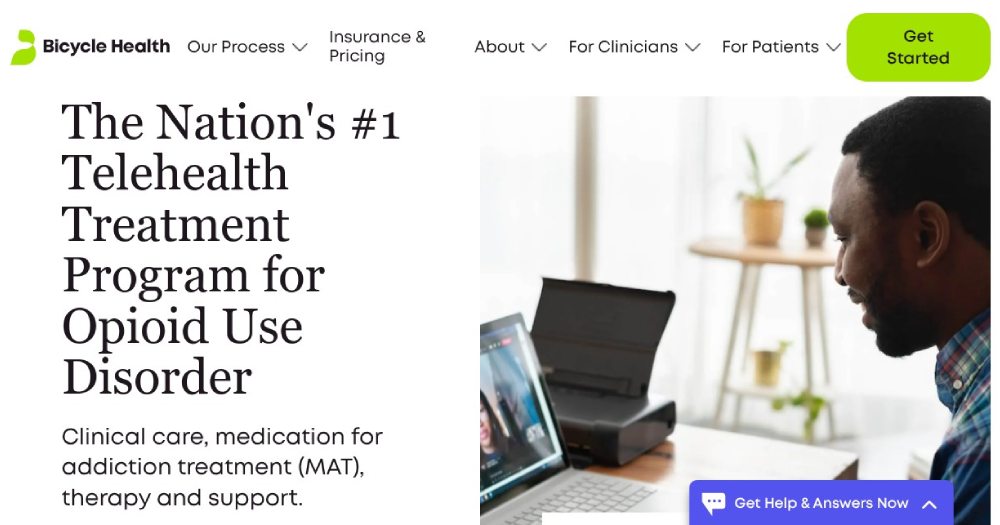US-based company offering a virtual opioid use disorder treatment platform

Boston, Massachusetts-based Bicycle Health has an interesting business model that, we believe, could be offered in other parts of the world. And as such, we're showcasing it in our "Copy this" section, hoping to inspire some entrepreneurs to give it a show.
Said company has reached profitability in Q4 2024 and raised $16.5 million to bring its lifesaving services to even more people across the country. As you can imagine, this represents proof that virtual addiction care can work at scale.
How does it work?
Bicycle Health's model is simple but powerful: deliver high-quality, evidence-based addiction treatment virtually. Since launching, the company has helped over 40,000 patients in 49 states, connecting them with FDA-approved medications, therapy, and peer support — all from the convenience of their own homes. The company partners with major insurance payors and is expanding its reach by bringing more addiction medicine specialists on board and developing new tech to enhance the treatment experience.
"Millions of people struggle with opioid use disorder, and tens of thousands die from opioid overdoses every year," says Ankit Gupta, founder and CEO of Bicycle Health. "Our virtual care model is proven to keep patients in treatment longer, reduce overdose rates, and improve access to care for people who need it most."
Why does it matter?
The opioid crisis isn't going away — it's the nation's biggest public health challenge, and traditional treatment models aren't keeping up. Many people who need help face long wait times, stigma, or logistical barriers like transportation and childcare. Bicycle Health is cutting through those roadblocks, offering confidential, convenient, and effective treatment that meets people where they are.
By proving its model is both clinically effective and financially sustainable, Bicycle Health is setting the stage for long-term impact. Investors are taking notice. "The team is tackling the opioid epidemic by delivering effective care to tens of thousands and reshaping healthcare with a scalable model," says Aabed Meer, MD, a partner at Questa Capital.
The context
Telehealth has been on the rise, but addiction treatment has lagged behind. Historically, OUD care has relied on in-person visits, which can be a significant hurdle for patients juggling work, family, and the chaos that addiction brings. The pandemic changed that, opening the door for virtual models like Bicycle Health's to step in.
Now, as policymakers debate the future of telehealth and insurers weigh its value, Bicycle Health has proven that digital addiction care isn't just a temporary fix — it's a viable, long-term solution. With a new CFO and COO on board, the company is doubling down on its mission to make high-quality treatment accessible to all. And if its latest funding round is any indication, the future of OUD treatment may well be virtual.
So, the question is, can something like this be launched in the MENA region, as well?
💡Did you know?
You can take your DHArab experience to the next level with our Premium Membership.👉 Click here to learn more
🛠️Featured tool
 Easy-Peasy
Easy-Peasy
An all-in-one AI tool offering the ability to build no-code AI Bots, create articles & social media posts, convert text into natural speech in 40+ languages, create and edit images, generate videos, and more.
👉 Click here to learn more


